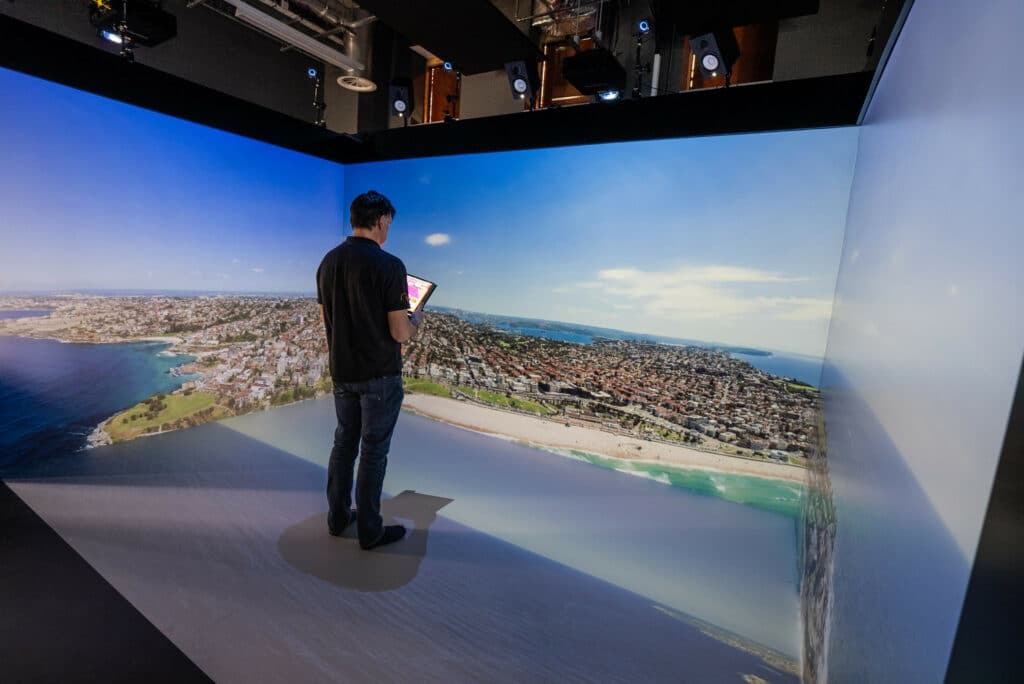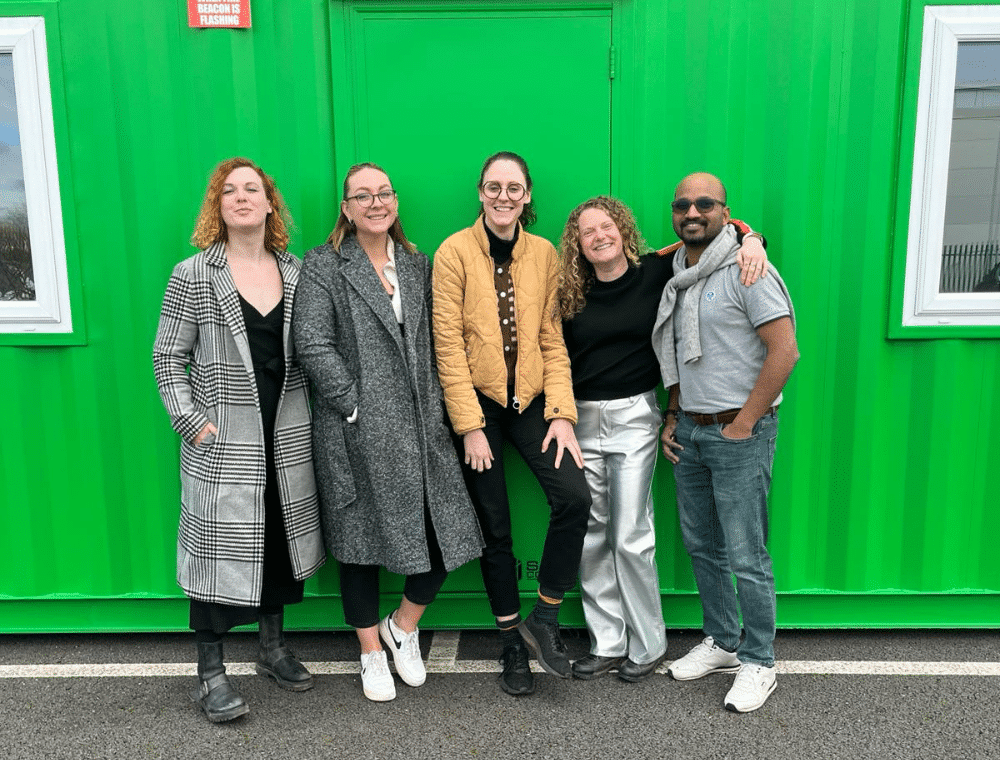
Innovate Together is our monthly think piece about the world of university-partnered innovation, written by Future Space Centre Director Professor Matt Freeman.
University-business collaboration is a bit like dancing: when the right people find each other, sparks fly. It’s almost elegant in the way that a business can benefit from insight, an academic can benefit from commercial impact, and a student can serve as the bridge between it all – facilitating novel activity while gaining new employment. But when that pairing of minds is amiss, it’s almost awkward and is a stark reminder of just how far apart the worlds of academia and industry remain.
Previous I have explored what early-stage university-partnered innovation looks like for a start-up, stressing the importance of seeing students not as resource for a business but as early validators in the business’ innovation journey.
Now I want to push this idea of the ‘dance’ (to extend my metaphor just a tad further) between a business and an academic – that’s to say, how can the lightning-in-a-bottle dynamic that characterises a business-academic-student collaboration be initiated and replicated in ways that appeals to and benefits all parties, ensuring that the needs of everyone from the CEO to the undergrad are being met?
My way into this question is to introduce the Future Space R&D Consultancy Project – our new model for facilitating this proverbial early-stage ‘dance’ for our companies. We know that student projects are a good way of initiating collaboration between a business and an academic, but they also come with countless problems (they’re too ad-hoc, too short, too messy, and too lots of other things). But they are good at kick-starting the kind of early-stage collision between an academic and a business that might lead to sparks of innovation.
Which is why we’ve formalised the student project model into something that sees Future Space operate as more like a programme partner on particular courses ran at UWE Bristol, creating a mechanism for talented, industry-ready researchers to rigorously respond to the R&D ambitions of our companies in a way that is not only fair for everyone, but also charts a path from university research to trailblazing business growth.
Importantly, this means that a suitable academic (with time in their workload) is assigned to co-supervise the project, themselves becoming advisors to the business in an unofficial capacity. It also means that both the schools of Applied Sciences and Engineering can open their doors to all kinds of collaborative testing facilities and equipment (everything from microbiology labs and electron microscope facilities to CNC machining and a VR cave). It even means that the schools can allocate a small consumables budget to support research costs.
In summary:
-
- A Future Space company devises a business-led brief for a R&D project.
-
- A student is assigned who then leads the project over a 6-month period.
-
- An academic from the relevant School plays a supporting co-supervisory role for the student while working alongside the company informally.
-
- The student is given access to relevant facilities and equipment within the School needed to do the R&D project, plus a small consumables budget.
-
- A follow-on meeting takes place, focused on further employment opportunities for the student and follow-on collaborative research.
In the case of the partnership with the School of Applied Sciences, for example, what this means is that the student graduates with a professional training development portfolio and with credits towards a PhD (depending on whether they go the industry or academic career route), the academic builds a new relationship with a company to drive deployment of their research, and the business gets to conduct the kind of mid-stage R&D trials that are crucial to innovating new products.
The case of NPK Recovery
As an example, take NPK Recovery Ltd., who joined us in 2023. Their growing team of five are working to create an innovative urine-based fertiliser. The aim is to recycle the nutrients in urine, turning a waste product into a phosphorus, potassium and nitrogen rich fertiliser, which itself is critical for food security. ‘We want to radically rethink how these critical systems in our society work and present solutions that deliver environmental benefits’, says Hannah Van Den Bergh, the company’s CEO. ‘Rather than producing manufactured fertilisers that rely on finite, mined nutrients, we want to return nutrient production to farmers.’

Hannah will be working with Dr Kevin Honeychurch, Senior Lecturer in Chemistry at UWE Bristol, who brings with him his prior expertise around monitoring hormones in urine, as well as a MSc student from the university, hired to lead on a brand new piece of R&D exploration for the company. ‘This project with Kevin is exploring the potential existence of compounds that includes pharmaceutical drugs and hormones that exist in urine,’ says Hannah, ‘ultimately so that we can quantify and understand the tipping point for how those compounds will impact soil once the fertiliser is spread.’
Kevin adds: ‘This is a great opportunity for our faculty to work in conjunction with a company at Future Space because we have students keen to work on projects looking at legal drugs in different compounds – an area that is very much in the news right now. To do this kind of project with students and to come up with a saleable product, it’s invaluable for all of us.’
Subscribe to Innovate Together, our monthly think piece on university-partnered innovation.

